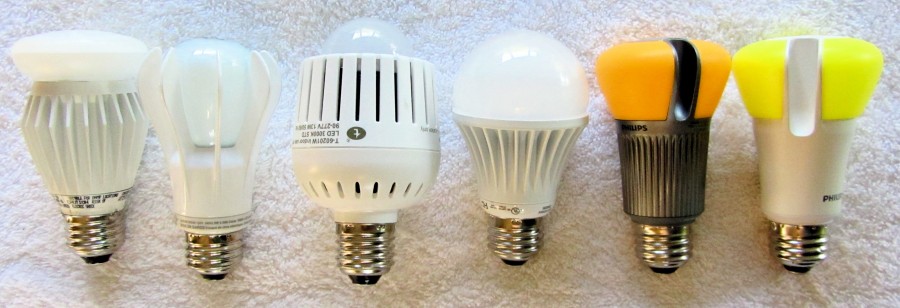
![declutter-weekend-distelfliege[1]](https://themoneyguy.co.uk/wp-content/uploads/2014/11/declutter-weekend-distelfliege1.jpg) When your home is a cluttered wreck, it can be hard to summon the motivation to tackle the chores you’ve been putting off and to toss or organize your scattered possessions. To make matters worse, you’re crunched for time and it’s tough to get anything done around the house, no matter how hard you try.
When your home is a cluttered wreck, it can be hard to summon the motivation to tackle the chores you’ve been putting off and to toss or organize your scattered possessions. To make matters worse, you’re crunched for time and it’s tough to get anything done around the house, no matter how hard you try.
I never seem to have enough time, so I completely understand your frustration. But sooner or later – maybe after you trip on an errant toy or lose an important file – you’ll hit your breaking point. When you’ve had enough, it’s time to do something about it.
A possible solution: Find a sitter, cancel your plans for the weekend, and get to work. I gave it a shot and I was rather pleased with the results. Here are some tips to help you clear the haze.
1. Work Strategically
If you finally muster up the courage to get your home in order, avoid stepping foot into the front door and tackling the first project you can get your hands on. This is a recipe for disaster, and you’ll be tempted to throw in the towel shortly after you’ve started.
Instead, take a moment to map out a plan of action. Here’s a sample schedule for a three-bedroom, two-bathroom home:
- Friday evening: living room, kitchen, hall closet (if applicable)
- Saturday: bedrooms No. 1 and No. 2 (including closets), guest bathroom
- Sunday: master bedroom (including closet), master bathroom
Once you’ve figured out which areas of the house you plan to work on each day, take things a step further by including actual objectives, or detailed notes of what needs to be done in each area and how you will accomplish the particular tasks. For example, if you plan to start in the kitchen, your list may look like this:
- Discard expired items from the pantry and neatly organize what remains on the shelves
- Empty out the kitchen cabinets and only place the items of value back inside
- Clear off the countertops
- Sanitize the appliances (interior and exterior) and other surfaces in the kitchen
- Mop and shine the floors
2. Purge Away
I hate to break it to you, but unless you have a magical, infinite attic, you’ll need to throw some things away to get rid of the clutter inside your home – even some things that are near and dear to your heart. It’s a necessary step because only when you start decluttering these neglected areas of the house do you notice things like noises of scratching in the walls, baby squirrels in the attic, mold growth on the ceiling, or some other problem that might have gotten out of hand without attention. You’ll be more than thankful that you were thorough and were able to take care of the problem properly.
Now, as for the things you decide to throw out, I know that it’s a hard thing to do, even with items that have no sentimental value – no one wants to discard something they spent hard-earned money on. However, if you absolutely cannot get rid of something, and you are willing to spend a bit of money, then consider getting a self-storage unit from services such as EZstoreit (ezstorit.com) and others like it. They are relatively cheap, and you won’t have to get rid of some absolutely essential things that you just don’t have the space for.
But you have to gather yourself (and your emotions) to give the situation some thought. How serious are you about tidying things up, and how did your home get this way in the first place? The answer might be rather simple: There are too many items and not enough space.
At least, that was my problem. I used to commit several hours a week to cleaning, only to encounter mess after mess a few days later. And then it hit me: The execution of chores wasn’t the problem, the clutter was.
Fed up with the constant messes in the home no matter how often we cleaned, we decided to embark on a “purging journey” and it was more difficult than we initially envisioned. While I’m definitely not a hoarder, I found myself getting agitated over the volume of items we needed to purge to clear up space.
Quite frankly, I’d forgotten for quite some time that they even existed, but I wasn’t ready to part ways with them. And for some strange reason, I feared I would suddenly find a need for them shortly after they were gone. Nevertheless, I stayed on pace and even sold a few things to ease the separation anxiety.
Wondering how to determine which items you should part ways with? Ask yourself these questions to make the call:
- Have you used the item in the past year?
- If so, will you have a need for it in the near future?
- If not, will you ever use it?
- Does it possess some sort of sentimental value?
- Will you lose sleep at night once it’s gone?
If the answer is no, toss it, sell it, or donate it. If you purge enough stuff, you can hold a yard sale the following weekend. The extra cash will ease the sting of tossing so much stuff.
3. Neatly Organize Everything Else
Done purging? Now it’s time for the (not-so) fun part: organizing what remains. But this time around, you won’t be spending loads of cash on plastic storage containers and stylish space maker tools. Instead, you’ll be working with what you already have lying around the house. Here are a few options:
Baskets
After years of spending countless hours searching for important items, such as keys cell phones and wallets, that seemed to vanish into a dark hole each night, I’d had enough. The only solution was labeled baskets, which we still find quite useful. They also make great organizers for toiletries under bathroom cabinets; I know I’m not the only one who’s spent more than a couple of seconds searching for a particular fragrance, shampoo, or lotion.
Drawer Dividers
These are perfect for those drawers full of miscellaneous items or kitchen utensils. If you don’t have any dividers on hand, you can easily make your own using pieces of a cardboard box.
Shoeboxes
Planning to store some items on the closet shelves? Shoeboxes, both cardboard and plastic, work like a charm, especially for accessories if you don’t have a jewelry box on hand. I also use them for arts and crafts supplies that my children use throughout the week for school projects and homework.
Bookshelves
I’m an avid reader, so the bookshelf in the office definitely serves its purpose. But I also use it to store my children’s electronics and trophies that won’t fit into their bedroom. And occasionally, a few of my project files find their way on the middle shelf for easier access.
New Stash
If you find yourself with useful items but no immediate place for them, rather than stressing over their fate, consider finding an empty and discreet area to store them temporarily. A practical solution is to utilize Storage units Colchester By Easy Store or from another provider in your vicinity. This allows you to keep these items safe until you’re ready to make a decision about their future.
4. Don’t Forget the Chores
After all the rearranging and foot traffic throughout the home, some tidying up will be necessary (or you could do it as you complete each room).
In my home, the living room floor is usually the first area to suffer because of all the foot traffic it gets each day. And it doesn’t help that we spend a bulk of our time as a family in the space. To properly clean the wood, I use a special solution that leaves the floor shining and looking brand new. But if I only clean the floor and ignore the other messes, something definitely looks a little off.
So, I always make sure to place the children’s toys (and whatever else they’ve managed to bring into the living room) back where they belong, dust the television stand, clean the baseboards, and vacuum the furniture padding to give the space a finished look.
And I can’t forget about my children’s bedroom. They enjoy spending time together playing with their toys, which makes mommy happy, so I try my best to keep up the space as best as I can. But there have been several occasions where I spent hours cleaning, organizing, and purging excess items, only to end up burying my face in my hand shortly afterward.
You see, my children get a kick out of making huge messes. For starters, they take all of the toy bins, neatly aligned against the bedroom and closet wall, and dump them out. Then they proceed to empty out the drawers underneath the bed, and finish up by digging through their dresser like madmen in search of last year’s Halloween costumes so they can pretend to be superheroes. And all of this is clearly audible from my bedroom.
What’s even funnier is that when I ask them to clean up their mess, it becomes clear that our perspectives on cleaning vary drastically. They think shoving everything that’s out of place into the closet and forcing the door shut is a job well done, but I beg to differ. I guess it’s the effort that counts; after all, they’re only 7 and 3 years old. So, imagine what would happen if I used their system for organizing things to keep the room intact!
5. Recruit Family and Friends
Do you have supportive friends or family nearby? Call them up, mention your plans, and ask if they’d be willing to assist. Even if it’s in the form of entertaining the kids for a few hours, which you’ll need if you have little ones, a little help can go a long way.
Since I have a slight obsession with keeping things organized around the house (when time permits), it’s not unusual for a family member or friend to give me a call and request input on how they should arrange things in their home. And in some cases, they throw in the towel and request that I come over, take a look, and help them get started. Either way, they accomplish the task at hand more quickly and are always willing to lend a helping hand in return if I need assistance.
Another tip: If a group of you will be hard at work for an entire day or weekend, why not add a little fun to the mix by blasting your favorite tunes and ordering pizza and drinks to complete the party?
6. Consistency is Key
Have you finally crossed off all the items on your to-do list? Take a second to pat yourself on the back, and then think of all the ways you can keep things organized moving forward. You now have a clean slate to start from, and you want to keep it that way. Here are a few tips:
Offer Yourself Incentives
On occasion, we all need a little push to get us motivated to complete a task. Clearing clutter shouldn’t be an exception to the rule. Anytime I’m in need of a little pick-me-up to get moving, I resort to edible incentives, such as a night out for dinner at my favorite restaurant, as a source of motivation.
Revisit Problematic Areas at Least Once Per Week
Some areas of our homes are more susceptible to clutter than others, and for many, the office proves to be a notorious challenge. With the influx of projects, paperwork often finds its way into the oddest corners after a few weeks. It’s crucial to stay on top of these problematic spaces to prevent clutter from becoming insurmountable. Alongside common issues like misplaced documents and overflowing desks, it’s essential to be mindful of potential hazards that may arise, including Mold Damage and water damage. Regular inspections for mold or water damage (since they’re offered freely by many companies), maintenance, and organisation not only contribute to a tidy workspace but also help in identifying and addressing potential issues before they escalate. Taking proactive steps to keep problem areas in check ensures a harmonious and healthy living environment.
Minimize Paper Documents
To prevent the problem mentioned above, I try to work with electronic documents or spiral notebooks as often as possible. Mail also has the potential to be problematic in our household, so I promptly shred any items we don’t need.
Another issue: documents from school. Between both children, the correspondence quickly begins to add up and get lost in a pile if we don’t make note of what is being communicated as soon as the documents arrive.
Stop Shopping!
If you don’t need it, don’t buy it (at least until you learn to keep the messes to a minimum). And if you think you need it, take a moment to assess its functionality and whether it will best suit your needs.
During the period in my life where I was extremely irresponsible with my finances, any item in a store that tickled my fancy came home, whether I purchased it with cash or credit. At the time, I was living in an extremely tiny apartment with limited closet space, so the more I purchased, the more crowded things were. At one point, there were piles of clothes with tags on the closet floor because I had nowhere else for them to go. Long story short, I didn’t necessarily need any of these things, and what a headache it was to clear the clutter once I finally realized I had let my spending habits get out of control.
Routine Purging Sessions
As time progresses and you notice some items are still kicking around even though they no longer serve a purpose, sell, donate, recycle, or dispose of them promptly. This should be done on a monthly basis to prevent clutter from resurfacing.
Instead of doing it in a single day, I allocate one day per room. When I consistently follow that pattern, the purging sessions usually don’t take more than 30 minutes, and I feel a lot better knowing that I was able to be proactive by keeping the home clean.
And remember, a few problematic areas may still exist after your weekend cleaning session. But you took initiative to get a handle on the problem and reclaim your home, and that’s what counts.







